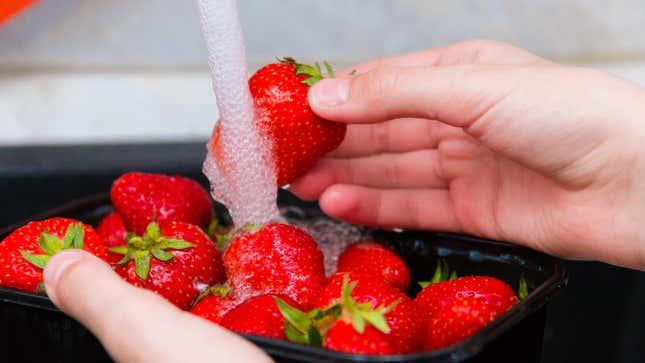Scientists detect perchlorate in everyday foods. This chemical compound is a component of rocket fuel.
A recent study found perchlorate in 67% of tested samples. Could your pantry be harboring this unexpected contaminant?
What Is Perchlorate: Everyday Chemical or Hazard?

Perchlorate serves multiple industrial purposes. It appears in rockets, airbags, and some plastics.
The compound can also form from bleach breakdown. How did this versatile chemical find its way onto our plates?
Environmental Spread: Perchlorate’s Silent Journey?

Perchlorate’s high solubility allows easy environmental spread. Some fertilizers contain naturally occurring perchlorate.
The compound can travel through soil and water. Is our environment becoming a perchlorate superhighway?
Food Contamination: Which Items Are at Risk?

Baby foods show the highest perchlorate levels. Fresh produce and fast food also contain significant amounts.
Foods in plastic packaging have elevated perchlorate content. Are we unknowingly serving perchlorate to our children?
Safety Thresholds: How Much Is Too Much?

The EPA sets a safe exposure level of 0.7 μg/kg body weight daily. Many experts argue this limit is too high.
Consumer Reports suggests lower thresholds are necessary. Who decides what’s safe when it comes to perchlorate?
Water Woes: Is Your Tap Perchlorate-Free?

Perchlorate can contaminate water supplies. Food remains the primary exposure source for most people.
Water quality reports may reveal perchlorate levels. Should we be filtering more than just chlorine from our water?
Health Impacts: Thyroid Under Attack?

Perchlorate interferes with thyroid hormone production. It can lead to hypothyroidism in adults.
Children and fetuses face higher risks from exposure. Could perchlorate be silently altering our metabolic health?
Children at Risk: Permanent Damage Possible?

Infants and developing fetuses are most vulnerable. Perchlorate exposure may lower IQ in babies.
Adult effects may be reversible, but child impacts can be permanent. Are we compromising our children’s future potential?
Symptoms of Exposure: Subtle Yet Significant?

Adults may experience fatigue and skin changes. Lower energy levels could indicate perchlorate exposure.
Infants might face developmental challenges. How many unexplained symptoms could trace back to perchlorate?
Protection Strategies: Can We Avoid Perchlorate?

Limiting processed foods may reduce perchlorate intake. Water filtration can help remove the compound.
Eating a varied diet might mitigate exposure risks. Is it possible to completely escape perchlorate in modern life?

